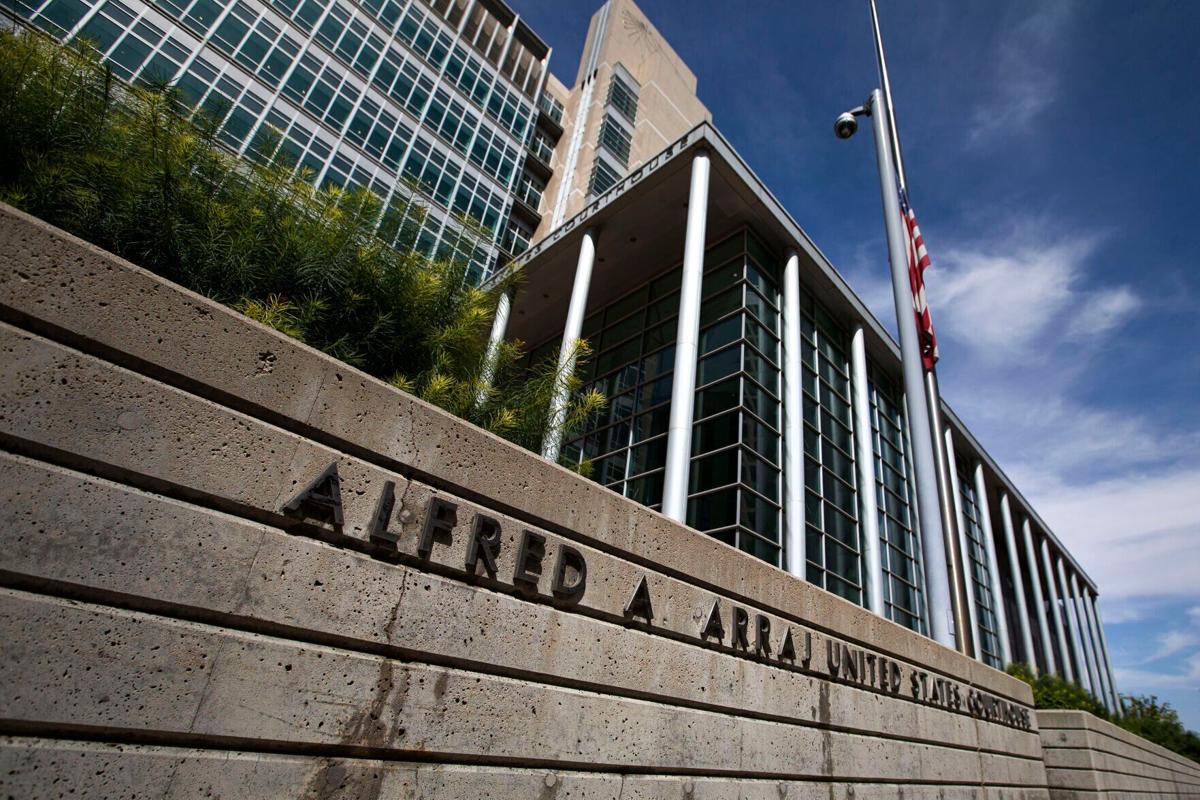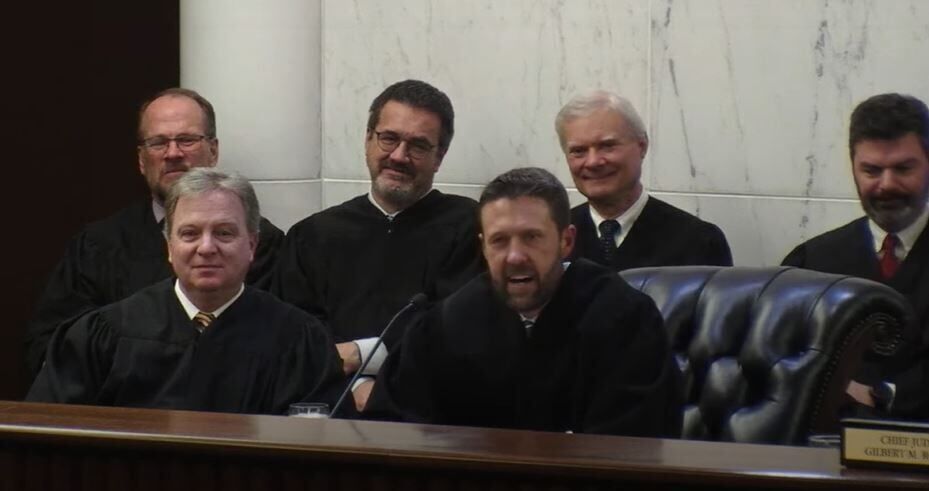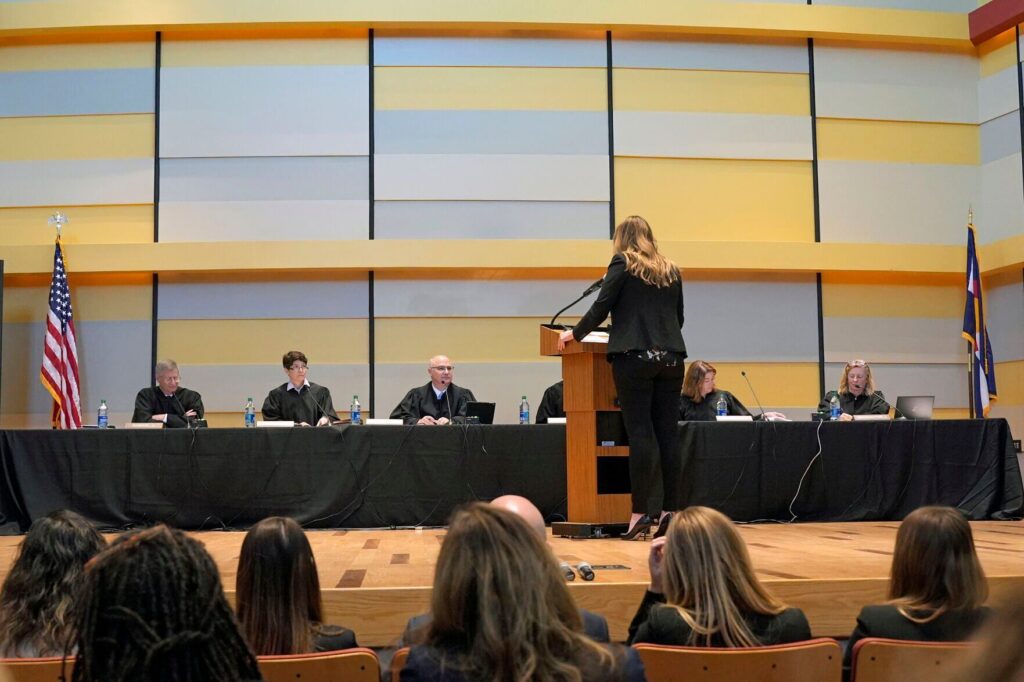‘Rare and unprecedented’: Federal judge grills government on its ‘interest’ in Tina Peters case
A federal judge on Tuesday struggled to understand why the United States government is claiming an “interest” in a relatively narrow issue related to the prosecution and conviction of former Mesa County clerk Tina Peters.
Although the government now alleges Peters’ state criminal case may have been politically motivated, the U.S. Department of Justice’s attorney would not say what evidence, if any, the department has to that effect.
When the federal government files a statement asserting it has an interest in a case, “the typical situation is, ‘We have an interest, judge, that you may not know about and we want you to be aware of it,'” said Chief U.S. Magistrate Judge Scott T. Varholak during a hearing. “I’m just struggling to see what you all bring to the table. Like, why file this?”
Jurors convicted Peters in 2024 for her role in a security breach of her office’s voting equipment. She is currently serving a nine-year prison sentence. While the state’s Court of Appeals reviews her conviction, Peters has filed a federal petition for “habeas corpus,” a legal tool used to challenge one’s confinement. Specifically, Peters is seeking to be released on bond while her appeal moves forward in state court.
However, last month the Justice Department unexpectedly inserted itself into the case, filing a “statement of interest” to claim it was reviewing whether Peters’ prosecution was “oriented more toward inflicting political pain than toward pursuing actual justice or legitimate governmental objectives.”
“Do you have any evidence to suggest this was a politically motivated prosecution?” Varholak asked the government’s attorney.
Justice Department lawyer Abigail Stout responded it was not “a stretch to say the Colorado state court did not agree with Ms. Peters’ view” on election security.
“Do you have any evidence of that?” repeated Varholak. “That the state of Colorado’s prosecution of Ms. Peters was politically motivated?”
“I’m not authorized to speak on that,” responded Stout.

FILE PHOTO: The Alfred A. Arraj federal courthouse in Denver
Timothy Hurst, The Denver Gazette file
Meanwhile, the state, which is litigating opposite Peters, characterized the government’s statement as an attempt to intimidate the court and prosecutors on behalf of a political ally. Lawyers with the Colorado Attorney General’s Office argued they could find no other instance of the federal government entering a habeas case arising from a state criminal prosecution.
“When they say they are doing an evaluation of the state of Colorado’s prosecution, to us it’s a threat,” said Natalie Hanlon Leh, the No. 2 official in the attorney general’s office. “It is so rare and unprecedented what the government has done today.”
Peters, a Republican and a supporter of President Donald Trump, was removed by court order in 2021 from supervising Mesa County’s elections amid allegations she helped leak sensitive voting equipment data. She later acknowledged in federal court that she provided forensic images from the county’s election management system to “computer experts,” which allegedly confirmed her belief a software upgrade ordered by Secretary of State Jena Griswold was legally problematic.
The subsequent investigation into Peters was meant to “punish her for exercising her First Amendment free speech right for the purpose of informing her fellow citizens of illegal actions of Griswold and problems with the computer voting system in Mesa County,” her lawyers claimed.
Jurors convicted her of multiple felony and misdemeanor offenses related to the security breach. The Republican district attorney spearheaded the prosecution.
At one point, Peters sued the DA’s office and then-U.S. Attorney General Merrick Garland over the investigation. The Justice Department, as recently as March 2024, argued no evidence showed “any intent to suppress constitutionally protected speech” and that “probable cause supported all charges.”
After state courts declined to release her on bond pending appeal, Peters filed her habeas petition seeking release. By that time, Trump had taken office and his Justice Department asserted there were “reasonable concerns” about Peters’ case and the potential infringement on her constitutional rights. Its statement of interest added that her habeas petition deserves “prompt and careful consideration.”
The attorney general’s office responded forcefully. While acknowledging the statement, by itself, would not affect the trajectory of the case, it warned Varholak about the Justice Department’s disparagement of state prosecutors.
It appears “the United States’ true interest in this matter is to advocate for a party who has very publicly promoted the 2020 election conspiracy theories of the sitting President, not to address the relevant issue before this Court,” wrote Solicitor General Shannon Stevenson.
Varholak agreed statements of interest are more common in certain instances, such as when a foreign government is a party and the United States has an interest in the proceedings. But he was curious why Peters’ own lawyers could not appropriately litigate her interests.

A gavel and the United States Supreme Court building.
DNY59
He also bristled at the request that he give “prompt and careful consideration” to Peters’ petition.
“I’ve presided over 6,191 cases,” Varholak said. “Can you name one case that I’ve had, one case that’s occurred in this district, one case that’s occurred in the history of American jurisprudence, where the court should not give prompt and careful consideration to the case before it?”
Stout, the Justice Department lawyer, agreed courts should “always give prompt and careful consideration.”
Hanlon Leh argued Peters’ claims of a political prosecution had already been litigated in her prior federal case, which resulted in dismissal. She asked Varholak to disregard the government’s statement of interest or at least strike the “inflammatory” portion characterizing Peters’ prosecution as political.
Varholak said he was unsure whether he, as a magistrate judge, had the authority to act. In civil matters, unless all parties consent to a magistrate judge’s handling of a case, a presidentially appointed district judge must be the ultimate decision-maker.
He gave the parties one week to submit additional arguments about his ability to rule on Colorado’s request.
The case is Peters v. Stancil et al.












